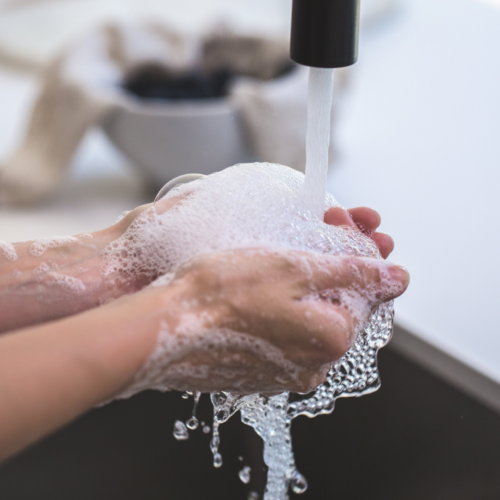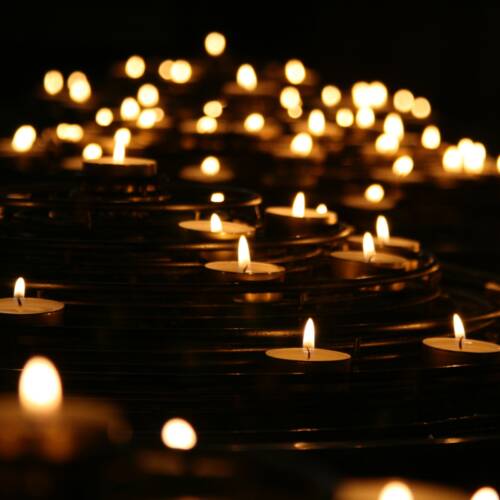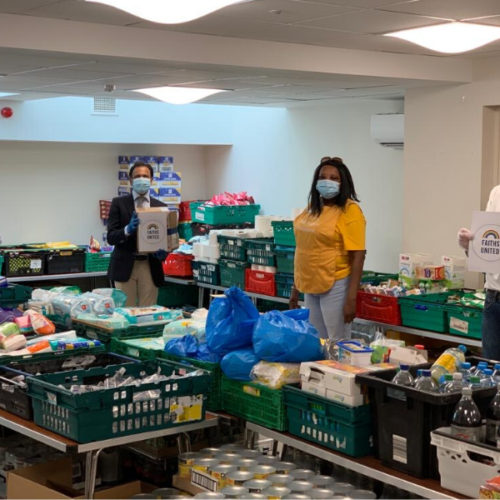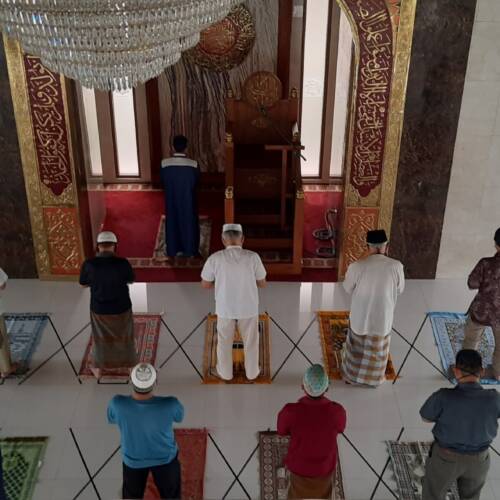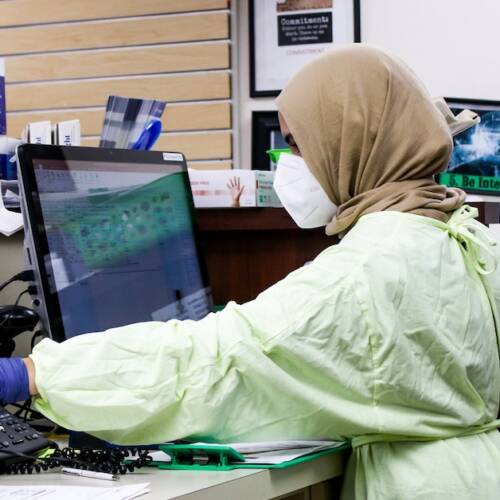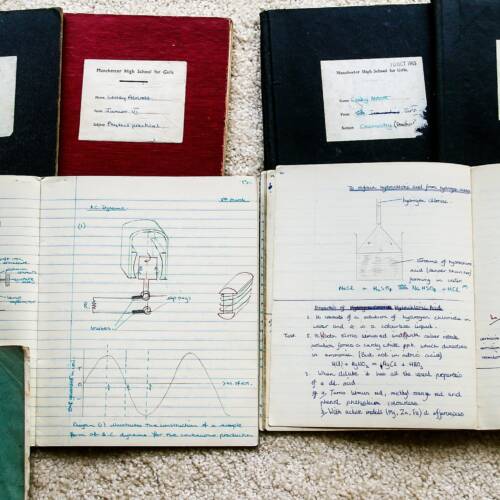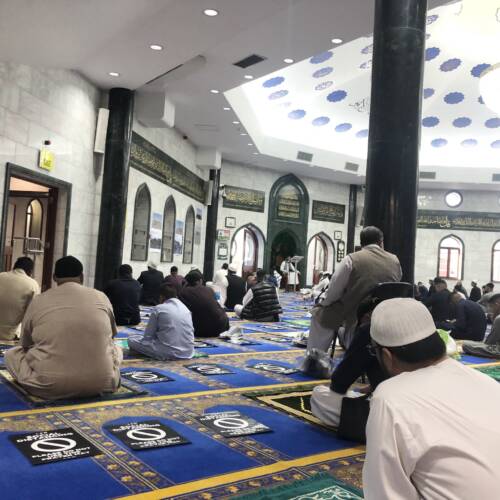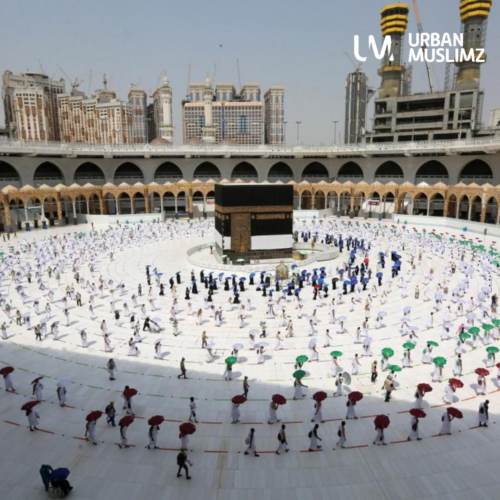
What Are the Guidelines for Muslim Burials During the Pandemic? Funerary Rites And Washing (ghusl) | Part 1
31 Mar 2020With an increasing death toll from coronavirus cases worldwide, Muslims in Britain must be prepared for more deaths within the community. There has been much uncertainty and confusion surrounding the funerary rites of the deceased, especially with handling the deceased and the potential risk of contracting the virus. The British Board of Scholars and Imams (BBSI) has laid out an extensive set of guidelines clarifying these issues. The following is what has been advised for those who may be involved with carrying out the funerary rites:
1. Who should perform the funerary rites for the deceased?
Given the contagious nature of the virus, and the possibility of contracting it from the deceased body, the following members of the community should not be involved in carrying out the funerary rites (except the funeral prayer – salat al janaza)
- Anyone elderly (over 60)
- Anyone with underlying health conditions
- Those who are in frequent contact with the above mentioned individuals
- Those who have not been properly instructed in the risks of dealing with suspected/confirmed Covid-19 infected bodies.
- Those who do not have basic training in handling infected bodies, including: methods of handling the deceased, safe working procedures, donning, and removing Personal Protective Equipment (PPE), personal hygiene, and steps to be taken if something goes wrong.
Individuals carrying out the burial should monitor themselves for symptoms of COVID-19, and must self-isolate if their symptoms match the criteria advised by the government.
2. Collecting and Transferring the Deceased
- The deceased must be treated carefully and with respect at all times.
- Only the minimum number of people required to carry out the burial safely and effectively should be present.
- All appropriate information regarding the body, its condition, and potential infection risks must be gathered prior to the collection – a hazard notification sheet is usually provided which includes this information and should be read carefully. This information must be kept confidential.
- The body should be placed in a body bag during collection and transfer. Individuals should avoid directly touching the body and minimise movement. Currently, Public Health England has not mandated the use of body bags for COVID-19 victims. But the BBSI highly recommends precaution, and that burial teams consult medical personnel regarding the use of body bags. A body bag must be used in case of bodily leakage or delays that will lead to bodily decay.
- Individuals should not place their hands in their mouth, nose or eyes during the collection and transfer of the body. Cover all cuts with waterproof dressings and wear Personal Protective Equipment (PPE). This includes gloves, eye protection, face masks, waterproof gown and sleeves and respiratory protective equipment if needed.
- All equipment should be disposed of after use. The equipment that is used for the body should be easy to decontaminate and disinfect regularly after its use. For example, the vehicles, tables or stretchers, surfaces and reusable PPE. After transferring the deceased, the burial team should dispose of protective clothing and wash their hands with soap thoroughly.
3. Who should perform the washing (ghusl) of the deceased?
- Those who are properly trained in PPE and with access to the appropriate equipment should carry out the washing of the body.
- Those selected to carry out the ritual cleansing should be aware of the Islamic rules on washing the deceased.
- Minimally, two people of the same sex as the deceased person should carry out the washing.
- Those on the exclusion list mentioned above (e.g. the elderly, or those with underlying health conditions etc.) should not participate in the washing of the body.
4. What are the procedures for washing a COVID-19 suspected deceased?
Washing a COVID-19 suspected deceased is safe, as long as those involved take the necessary precautions. Public Health England has not made it necessary for COVID-19 suspected deceased to be sealed in a body bag, and have deemed hygienic preparations and even post-mortem to be permitted for those who are COVID-19 positive. This is in line with their guidance on infectious diseases in general, such as HIV, SARS and Ebola – which are more infectious from deceased bodies than COVID-19.
The primary concern with COVID-19 is the large number and the rate at which funerals will be required. Family members and washers of the deceased should be assured that all of the following is safe and in accordance with Islamic law.
A deceased body may be received from the morgue in one of two circumstances: with or without a ‘DO NOT OPEN’ tag.
- In the case where there is a ‘DO NOT OPEN‘ tag, those performing the cleansing rite should wear PPE and wipe over the sealed body bag from head to toe, after having applied some water to their gloved hands.
- In the case where there is no ‘do not open’ tag, it is possible for the deceased to be given a minimal washing, provided the following conditions are met:
i) Those washing the body wear all the appropriate PPE and are properly trained in its donning/removal.
ii) All reasonable means are taken to minimize risk of transmission, such as avoiding procedures that are aerosol-generating (like moving the body around).
iii) The deceased does not suffer from any other condition that creates a significantly higher-risk of transmitting disease.
iv) Those in charge of burial are able to provide a safe and dedicated space for washing that is properly disinfected/decontaminated after every washing procedure.
The ‘minimal washing’ consists of the following:
i) Minimal movement of the deceased’s body.
ii) Avoiding removing the disinfectant covering from the face.
iii) Pouring water over the deceased’s body from neck down.
iv) Flowing hair may be washed or wiped.
v) Avoiding performance of istinja or pressing the abdomen to extrude contents.
If the risk of infection is extremely high, then – as a last resort – the deceased can be buried without either ghusl or wiping.
- If any of the steps mentioned above cannot be carried out safely, including not having access to adequate PPE, then the option to wipe over the body bag should be utilised.
- If one is advised by morgue staff that the risk of infection is extremely high, then – as a last resort – the deceased can be buried without either ghusl or wiping.






